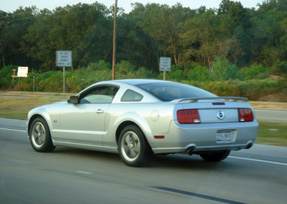The style of driving affects the fuel consumption rate. Accelerating too quickly and hard breaking all lead to a waste in fuel. Such driving on highways can reduce mileage by 33% and in the city mileage will drop by 5%. At speeds over 60mph the fuel economy of the car drops. In order to get the best mileage try to drive at a speed of around 45mph. Driving slower means that the engine will need to churn out more revolutions at lower gear ratios. This decreases efficiency. Ideally whenever possible use cruise control as it will help to save on gas.
Using the air-conditioner in the car reduces its efficiency due to the added load on the engine. As far as possible when temperature permits, switch off the air-conditioner and roll down the windows.
Reducing the weight of the car will help in increasing mileage. This means taking out all unnecessary baggage that might accumulate in the car. When carrying baggage, try to fit it into the boot and avoid stacking on the rooftop carrier. This will reduce the amount of drag that the car faces.
Cars usually have a recommended grade of motor oil. Using a grade that is lower than the recommended can reduce performance by at least 1% to 2%. Properly inflated tires that are well aligned can help to improve gasoline mileage by 3.3%.
Get your car regularly serviced. A mechanic will be able to identify if your car has problems that affect its mileage. This could include worn spark plugs, dragging brakes, low transmission fluids or transmission problems. Clogged air filters can bring down your car’s performance by as much as 10%.
Ensure that the tires of your car are properly inflated. This can help to improve the mileage of your car by as much as 40%. A properly inflated tire will also last longer.
Try to plan out your errands so that you can manage to do them sequentially in one outing. This will reduce the need for many short trips and save on fuel. Cold starting a car for numerous short trips is uneconomical as compared to having a long trip.










